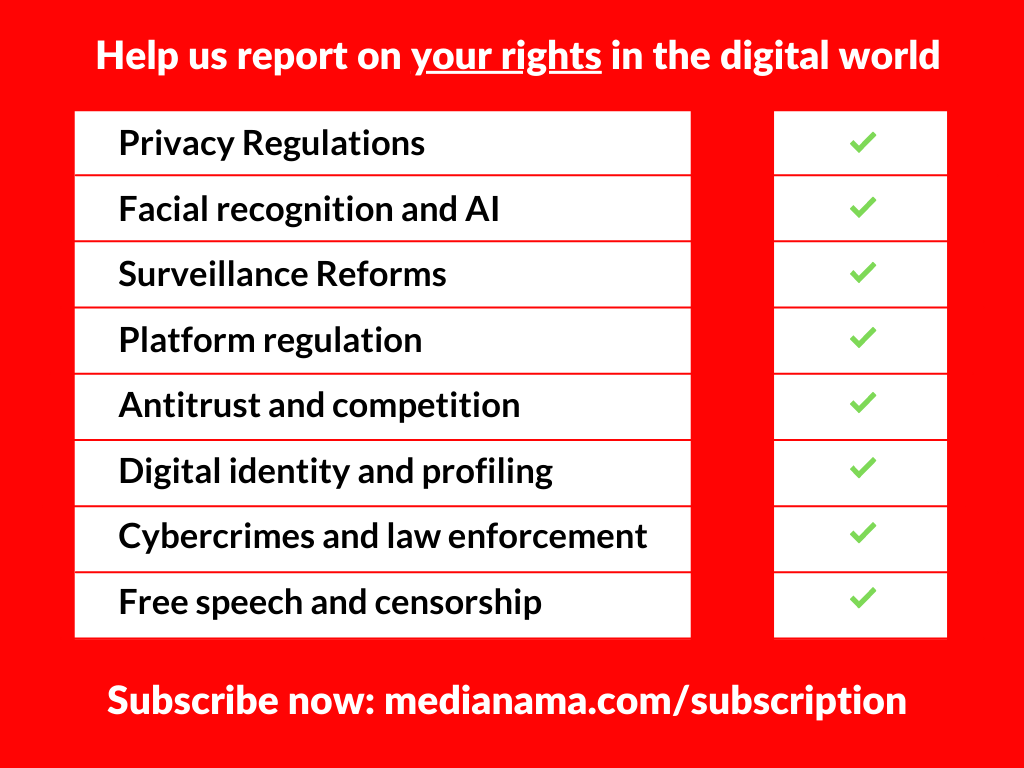Online gaming companies in China will have to establish and improve game rules to prevent minors from becoming addicted to online games, according to draft rules released by the Cyberspace Administration of China (CAC). The rules also direct gaming companies to ensure that minors do not come in contact with game content or functions that will affect their physical and mental health.
They also mandate gaming companies to come up with age-appropriate standards and norms which are displayed prominently on user download, registration, and login interfaces. Chinese law considers minors as someone under the age of 18. Some of these norms include labelling, evaluating game elements to categorise products as per the physical and psychological traits of minors at different ages, and denoting the true age range that the games are suitable for, according to the draft rules.
This is part of the CAC’s draft rules for the protection of minors when they log on to the internet. The revised draft is an update of a 2016 draft policy that was released to the public but never adopted, according to a post on China Law Translate. The CAC is inviting feedback till April 13, 2022.
The draft rules may serve as a blueprint for other countries to tackle internet and gaming addiction which has been exacerbated in the aftermath of the pandemic. The Chinese government has been busy trying to limit the growing influence of tech companies in the last couple of years. The rules can be viewed as another step taken by the Chinese government to rein in tech companies and their grip on minors.
Dear reader, we urgently need to build capacity to cover the fast-moving tech policy space. For that, our independent newsroom is counting on you. Subscribe to MediaNama today, and help us report on the policies that govern the internet.
What are the proposed measures for gaming companies in the draft?
The draft rules have laid down several measures that govern how gaming companies can interact with minors, such as:
- Develop youth mode for minors: The rules require online service providers, such as gaming, live-streaming, OTT, and social networking companies to set up youth modes for minors to use their services, which complies with relevant prevailing regulations in terms of game time, duration, function, and content.
- Offer function for guardianship duties: The rules also direct gaming companies to provide parents and guardians with functions to perform their duties. Some of the duties concern management of time, permission, and consumption, among others.
- Limit minors’ consumption time: The companies will need to take measures to limit the time that minors spend in a single day on their services. Consequently, the companies have to also keep a check on the cumulative amount of consumption undertaken by minors. They are directed not to provide paid services to minors that are inconsistent with their civil capacity, as per the draft rules.
- Resist negative tendencies: Internet companies should not indulge in negative tendencies such as traffic supremacy and put in place measures to prevent such corporate ethics. These companies have to desist from setting up communities and groups with calls for fund-raising, voting for rankings, or rigging traffic and reviews; the companies have to also steer clear of inducing minors to participate or carry out activities in these groups, the rules read.
- Collect real identity information: The rules instruct tech companies to offer their services only to those users who provide their true identity credentials at the time of registration. The companies also have to verify their identity information through the Online Gaming Electronic Identity Authentication System established by the state for minors. The firms will have to terminate their service to minors who do not provide true identity information and cancel their accounts subsequently.
China’s past restrictions on gaming companies to address addiction
This is not the first time that China has tried to tackle gaming addiction. The country came out with rules in September 2021 limiting the number of hours minors can play in a week. Some of the measures were as follows:
- An hour each on Friday, Saturday, and Sunday: Online gaming companies can allow minors to play games between 20:00 and 21:00 on Friday, Saturday, Sunday, and statutory holidays. At all other times, these companies should not provide games to minors in any form.
- Real-name registration must be ensured: Companies must strictly implement real-name registration and login requirements for online gamers by ensuring that users register with their real names and government-issued identification documents.
- Government must increase supervision of online gaming companies: Chinese government departments were asked to strengthen their supervision and inspection of online gaming enterprises to verify the implementation of the provisions laid down by the state. They were asked to increase the frequency and intensity of inspection, and hold violating companies strictly accountable.
It remains to be seen whether the country was able to address the issue of addiction as reports of kids exploiting loopholes started emerging following the passage of China’s new rules. An op-ed in the People’s Daily, the Chinese Communist Party’s official newspaper, said that kids were circumventing restrictions by buying and renting accounts on online trading platforms to play games for more than three hours.
Is India equipped to deal with gaming addiction among minors?
Sonali Patankar, Founder and President of Responsible Netism, said that India neither has the policy nor the infrastructure to tackle gaming addiction among minors. Responsible Netism is a civil society organisation working on creating awareness around the online protection of minors in the country.
“A government policy is needed on an urgent basis because we cannot categorise content without it. It is why access is available to everybody from the age of two to 95,” Patankar said.
Patankar supported the idea of a youth mode by services in the Indian context as proposed in China’s draft rules. She said that there are mechanisms that can be implemented but there is a lack of willingness.
She added that China’s draft rules put the onus on minors to declare their age so that they can access content reserved for them.
“But in our country, there is absolutely no awareness and literacy. They’re (minors) logging on platforms claiming they are adults,” Patankar bemoaned.
She highlighted the example of Instagram where the platform will make the account private if it comes to know that the user is below 13 years of age.
What kind of measures can India explore to tackle gaming addiction?
Patankar laid down the following measures, that the Union government must consider, in an interview with MediaNama:
- Need for rating system in India: Patankar explained that there is no awareness of age-appropriate gaming behaviour. “It is one of the biggest concerns where even five-year-olds are playing PUBG. There are no ratings. We follow ESRB and PEGI. There is no Indian rating system. Google ratings have no value at all,” she said, adding that a holistic maturity rating is critical for the Indian audience.
- Screen apps on Google Play Store: Patankar recommended that the screening of apps needs to be tightened by Google because the presence of these apps on the store is what exposes minors to them. She revealed that the organisation has come across cases of 10-year-old kids using apps like Bumble and Tinder. She added that apps should also be subjected to maturity ratings.
- Don’t let minors carry out transactions: The issue of gaming and gambling is critical and cannot be segregated because there are many overlaps between the two, as per Patankar. She suggested that transactions involving buying skins or upgrading their levels by minors cannot be allowed. “There has to be a system that stops them from using any economic transactions,” she said.
- Bans are not effective: Patankar, however, stopped short of advocating for a ban saying that a ban never works in such cases. She said that a ban only accelerates adoption and helps such platforms flourish. She reiterated that it is important to categorise games involving commercial angles in a separate domain as the liabilities are different.
- Platforms should guard their content: It should be the responsibility of platforms to ensure their content is not available for free on other platforms, according to Patankar. For example, several people downloaded the apk file of a popular game PUBG after it was banned by India, or popular film or game titles were available to download using Telegram, ShareIt, and torrent sites.
- Implement measures laid down in curriculum: Many state governments, including NCERT, have come up with academic content around cyber safety which covers internet abuse and addiction. “Our worry is who and how do they implement it in the classroom? It is where the challenge lies. Only a few organisations have been training teachers to implement that because schools don’t have the bandwidth to implement such programs on account of understanding issues or lack of training,” she said, adding that civil society organisations need to come together to educate and implement awareness programs within educational institutions.
- Create awareness about the dangers of internet addiction: There is very little awareness about internet addiction and it is usually dismissed as a phase in people’s lives. People should be encouraged to seek help, she said.
- Provide infrastructure with a multi-stakeholder approach: The responsibility cannot lie solely with the government or the law enforcement or educational institutions, Patankar reasoned. She said that there is a need for more services like clinics to tackle gaming addiction which can only happen once the idea of gaming addiction is normalised.
- Sensitise parents from the start: The fear of the unknown because of fast-paced developments in the tech space is driving parents to a ban because they don’t know how to handle the situation, Patankar reasoned. Cyber hygiene has to start at the pre-primary level, she said. “The introduction of gadgets needs to be a critical element of parenting,” she said.
How has India addressed gaming addiction so far?
Distress Management Collective, a New Delhi-based NGO, sent a letter to the Indian government in July 2021 requesting it to set up a censor board for real money gaming and violent games. It followed up its request with a petition in the Delhi High Court to order the government to implement the demands.
The petition argued that children were getting addicted to video games necessitating regulation in the space. “There is a need for schools to give emphasis to counselling sessions and periodic sessions regarding the drastic effects of getting addicted to online gaming. The petition also intends to bring to the fore the role of Cyber Cell to tackle the menace of online game addiction and resultant monetary exploitation in some cases,” read the petition.
The Delhi High Court directed the government to consider formulating a policy to protect children from addiction to online games and constitute a regulatory authority to monitor and rate the content of both offline and online games while refusing to impose any ban, according to Moneycontrol. The government is yet to announce any progress in this matter.
This post is released under a CC-BY-SA 4.0 license. Please feel free to republish on your site, with attribution and a link. Adaptation and rewriting, though allowed, should be true to the original.
Also Read:
- Why is China’s crypto ban its most severe one? and other FAQs on the latest measures
- Reading List: Why is China cracking down on tech companies?
- Key takeaways from China’s pioneering draft regulations on recommendation algorithms
- Summary: China passes GDPR-like data privacy law, except that many restrictions do not apply to the government
Have something to add? Subscribe to MediaNama here and post your comment.































